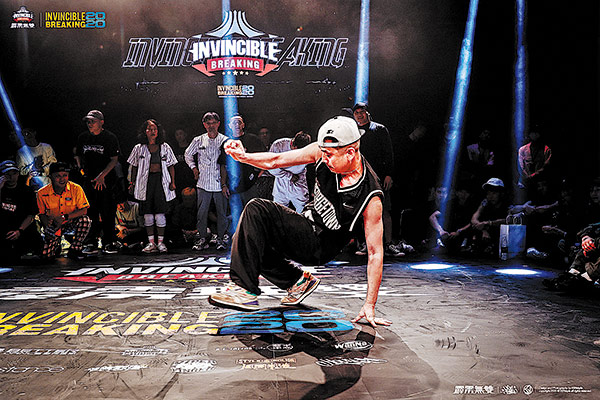

"The premise is to respect and maintain the cultural root, and then we can seek a balance upon it," he says.
It was not until around the beginning of the century that breaking emerged in China, about a decade later than Japan and South Korea. Pei himself was initially fascinated by performances of Michael Jackson and K-pop group H.O.T.
So far, some Chinese breakers have achieved good rankings in international competitions, including R16 Korea, Red Bull BC One and SCAPE Radikal Forze Jam in Singapore, but very rarely have Chinese breakers won top honors, according to Pei, who's also team leader of Dragonstyle Crew, one of China's most renowned and successful breaking crews.
Nevertheless, recent years have seen breaking develop rapidly as an industry in China, notably after variety shows like Street Dance of China hit the screen.
There have been increasing commercial, professional breaking events, and online resources, through which the breaking community can interact with, and learn from, each other-all while attracting a growing audience.
The Chinese breaking circle was maintaining close offline connections with the international community before the outbreak of COVID-19 pandemic. Particularly, since breaking has made its way to the Olympics, parents are more willing to let their kids participate, which is very different from Pei's teenage years, when learning street dance was often viewed as a distraction from seemingly more important pursuits.
An industrial research report, released in December by China Hip-Hop Union Committee and the school of cultural industries management of the Communication University of China in Beijing, revealed that the country currently has 32 provincial street dance unions in contact with around 3 million practitioners and nearly 10,000 training studios.